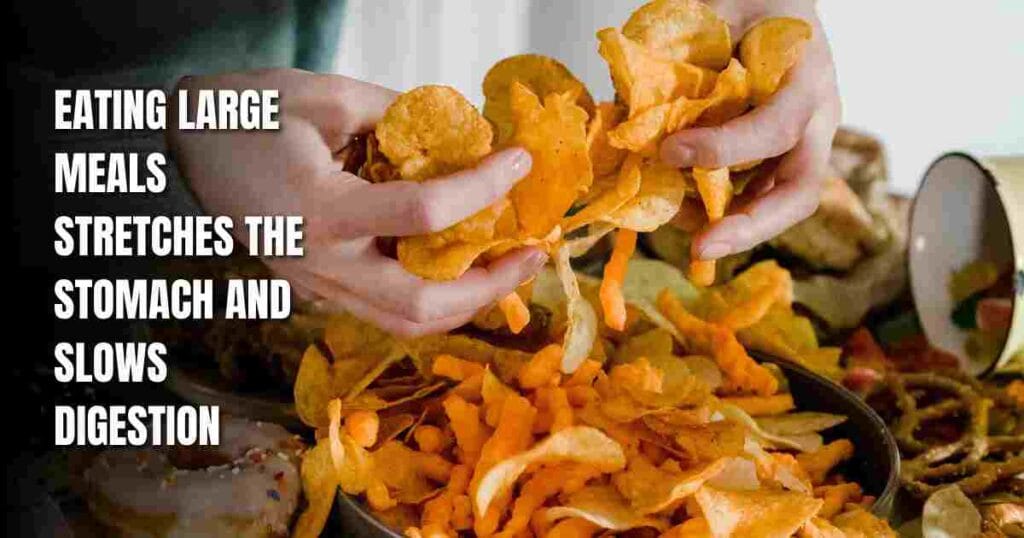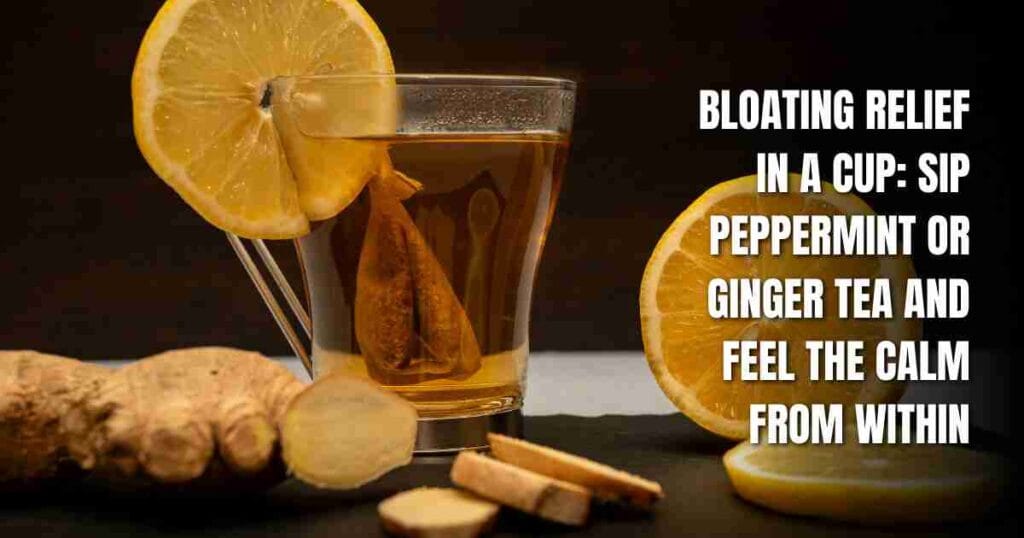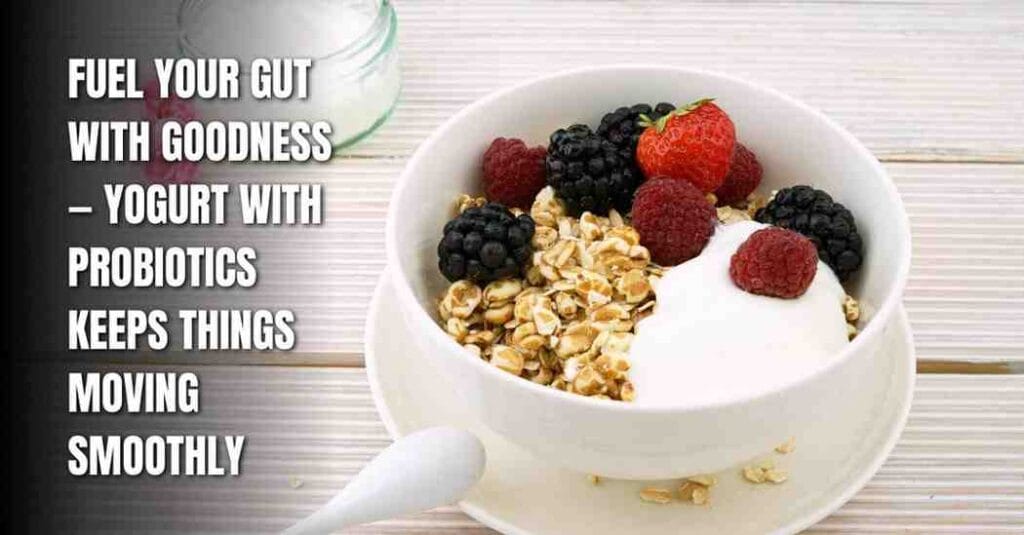There has been a time in everyone’s life when you wake up one morning with a flat stomach and then spend the entire day as if you’ve swallowed a balloon. The bloating difficulties can sneak up on anyone, unfortunately, at the wrong events, inflicting feelings of pressure, discomfort, and possibly even self-consciousness. It is completely natural for a person to feel bloated sometimes; however, some signs, along with the fact that the bloating has now become chronic or extremely painful, may indicate that something is amiss in the body.
This article will provide an in-depth understanding of the factors responsible for bloating, and learn the ways to effectively reducing bloated belly quickly. Moreover, we will also explore some long-term lifestyle changes that could help you be stay without bloat.
What Is Bloating?
Bloating is the sensation of fullness or pressure in the abdomen, sometimes felt with an external bulge or distension. Bloating usually results from excess gas in the body, retention of fluid, and disturbances in the digestive system. Not every bloating is an aftermath of overeating; a small amount of intake can sometimes cause it.
Common Causes of Belly Bloating
Here’s a quick overview of the usual suspects behind belly bloating:

| Cause | Explanation |
| Overeating | Eating large meals stretches the stomach and slows digestion. |
| Gas-producing foods | Beans, lentils, carbonated drinks, and cruciferous veggies can cause gas. |
| Swallowing air | Chewing gum, drinking through straws, or eating too fast introduces excess air. |
| Food intolerances | Lactose, gluten, or fructose intolerance can trigger bloating. |
| Irritable Bowel Syndrome (IBS) | This chronic condition is a major bloating culprit. |
| Constipation | Trapped stool can lead to bloating and discomfort. |
| Hormonal fluctuations | Many women experience bloating around their menstrual cycles. |
| Stress and anxiety | These can disrupt digestion and cause bloating. |
| Sodium overload | High-sodium diets cause water retention and bloating. |
| Lack of movement | A sedentary lifestyle slows digestion and promotes gas buildup. |
Quick Fixes: How to Debloat Fast
If you are looking forward to reducing bloating quickly, especially before some special occasions or after having an indulgent meal, the following remedies can help by offering almost instant relief:
1. Sip Warm Water with Lemon
Lemon water can be a mild diuretic, it helps to remove excess sodium and water from the body and warm water also stimulates digestion.
2. Take a Short Walk
We often sit down with our phones right after we finish our meal, for entertainment. But little do we realise the side effects of it. It is always advisable to have a short walk after every meal. Light movement helps move the gas through the digestive tract and reduces abdominal pressure. Even 10–15 minutes of walking can make a difference.
3. Try Peppermint or Ginger Tea

Peppermint is known to relax the intestinal muscles, while on the other hand, Ginger helps in stimulating the digestive enzymes. Both herbs are natural carminatives (gas-reducers).
4. Apply a Warm Compress
Placing a warm water bag or heating pad on one’s stomach eases tight abdominal muscles and consequently reduces discomfort.
5. Do Gentle Yoga Poses
As common knowledge goes, poses like Child’s Pose, Cat-Cow, and Supine Twist aid in releasing trapped gas and relieving bloat.
6. Use OTC Remedies (Cautiously)
Temporary Relief Instrumentation Simethicone Tablets: e.g. Gas-X, Activated Charcoal Tablets can help to relieve temporary discomfort immediately, but routine usage should not be relied upon.
Foods That Help You Debloat
Eating the right foods can help relieve bloating and promote smoother digestion.

| Food | Why It Helps |
| Cucumber | Contains antioxidants and flavonoids that reduce inflammation. |
| Pineapple | Rich in bromelain, a digestive enzyme that breaks down protein. |
| Bananas | High in potassium, which helps balance sodium levels. |
| Yogurt (with probiotics) | Promotes gut health and regularity. |
| Papaya | Contains papain, a natural enzyme aiding digestion. |
| Asparagus | A natural diuretic that helps flush out excess water. |
| Fennel Seeds | Reduces gas, soothes digestion, and relieves cramping. |
Foods to Avoid When You’re Bloated
These foods are known to contribute to bloating and should be minimized:
| Avoid These Foods | Reason |
| Carbonated beverages | Trapped gas leads to bloating. |
| Beans and lentils | High in fermentable fiber. |
| Cruciferous vegetables | Broccoli, cabbage, and cauliflower produce gas. |
| Dairy (for lactose-sensitive) | It can cause fermentation in the gut. |
| Processed foods | High sodium content promotes water retention. |
| Artificial sweeteners | Sorbitol and xylitol are hard to digest. |
Long-Term Habits for a Flatter, Happier Belly
While quick fixes really work, long-term habits will reside in the body with the hope of never bloating. Here are active lifestyle considerations you can implement:
✅ Chew Food Slowly
Fast eaters tend to swallow air and do not chew the food properly, causing bloating.
✅ Eat Smaller Meals
Instead of three heavy meals, go for five to six smaller meals that put less stress on digestion.
✅ Drink Plenty of Water
Water helps keep your digestive system working well so that constipation will not lead to bloating.
✅ Reduce Salt
Reduced consumption of processed snacks, canned foods, and restaurants. Use fresh herbs and spices instead.
✅ Consider a Probiotic Supplement
Probiotics restore equilibrium to the gut and can help decrease bloating associated with dysbiosis (an overgrowth of bad bacteria).
✅ Manage Stress Levels

Elevated cortisol can impact on digestion; simple activities like deep breathing, journal writing, or even a brisk walk can reduce stress.
✅ Monitor Your Triggers
Use a food journal to record what foods cause your bloating. Fitness Apps will be a good support.
When Should You See a Doctor?
If occurring persistently accompanied by pain or other symptoms which include weight loss, vomiting, or bloody stool, these are some of the conditions for which you should seek medical attention. Some possibilities include Celiac disease, IBS, SIBO, or ovarian cysts.
Final Thoughts: The Road to a Bloat-Free Life

Bloating can be annoying and sometimes scary, but for the most part, it is a condition that one can manage. By learning about the causes and building a toolbox of natural and effective remedies, you can take control of your digestive comfort and start feeling lighter-faster-going forward.
Your gut health is directly linked to your overall well-being. Some small changes in your routine can create a big swing in things: not just in your belly size but also in your energy, mood, and confidence.
Check out more interesting and informative Blogs!
Love our Content? Follow Us on Instagram!


1 thought on “Bloating Solutions: 7 Effective Science-Backed Tips to Try”